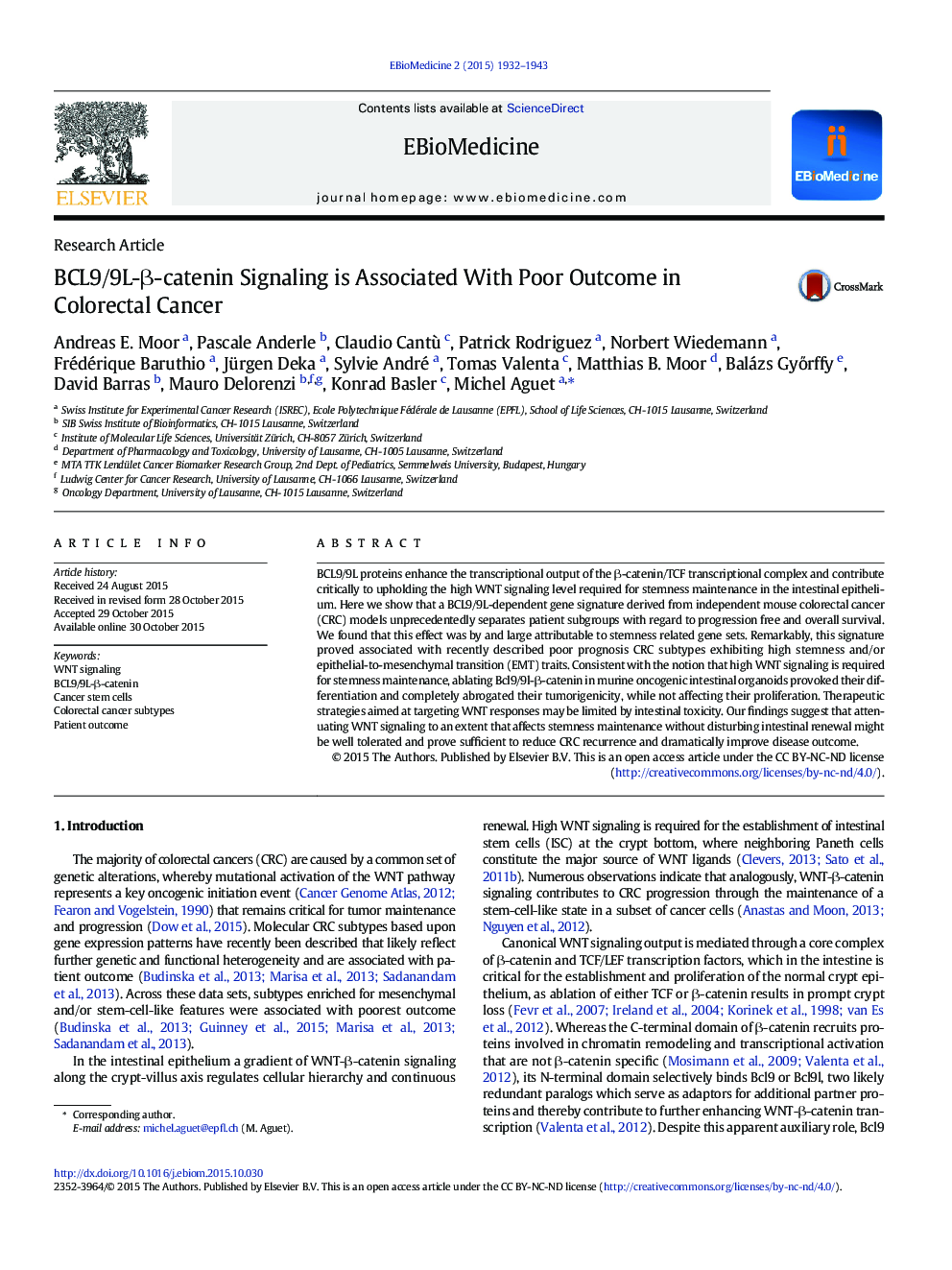| کد مقاله | کد نشریه | سال انتشار | مقاله انگلیسی | نسخه تمام متن |
|---|---|---|---|---|
| 2121072 | 1085768 | 2015 | 12 صفحه PDF | دانلود رایگان |

• Inhibiting BCL9/9L-β-catenin in CRC models reduces stemness and boosts differentiation traits
• CRC patients with low expression of BCL9/9L-β-catenin regulated genes have a better prognosis
• Tempering WNT signaling without affecting intestinal self renewal might be an attractive therapeutic strategy in CRCMutational activation of the WNT pathway is a key oncogenic event in colorectal cancer (CRC). Targeting the WNT pathway therefore appears as an attractive strategy, but the therapeutic window might be limited due to intestinal toxicity. Maximum WNT signaling strength is required for upholding stemness traits, which are linked to poor prognosis in CRC. Our data suggest that tempering WNT signaling through abrogating BCL9/9L-β-catenin signaling in CRC models is tolerable for intestinal homeostasis yet strongly diminishes stemness traits and may have a vast impact on CRC patient outcome.
BCL9/9L proteins enhance the transcriptional output of the β-catenin/TCF transcriptional complex and contribute critically to upholding the high WNT signaling level required for stemness maintenance in the intestinal epithelium. Here we show that a BCL9/9L-dependent gene signature derived from independent mouse colorectal cancer (CRC) models unprecedentedly separates patient subgroups with regard to progression free and overall survival. We found that this effect was by and large attributable to stemness related gene sets. Remarkably, this signature proved associated with recently described poor prognosis CRC subtypes exhibiting high stemness and/or epithelial-to-mesenchymal transition (EMT) traits. Consistent with the notion that high WNT signaling is required for stemness maintenance, ablating Bcl9/9l-β-catenin in murine oncogenic intestinal organoids provoked their differentiation and completely abrogated their tumorigenicity, while not affecting their proliferation. Therapeutic strategies aimed at targeting WNT responses may be limited by intestinal toxicity. Our findings suggest that attenuating WNT signaling to an extent that affects stemness maintenance without disturbing intestinal renewal might be well tolerated and prove sufficient to reduce CRC recurrence and dramatically improve disease outcome.
Graphical AbstractFigure optionsDownload as PowerPoint slide
Journal: EBioMedicine - Volume 2, Issue 12, December 2015, Pages 1932–1943